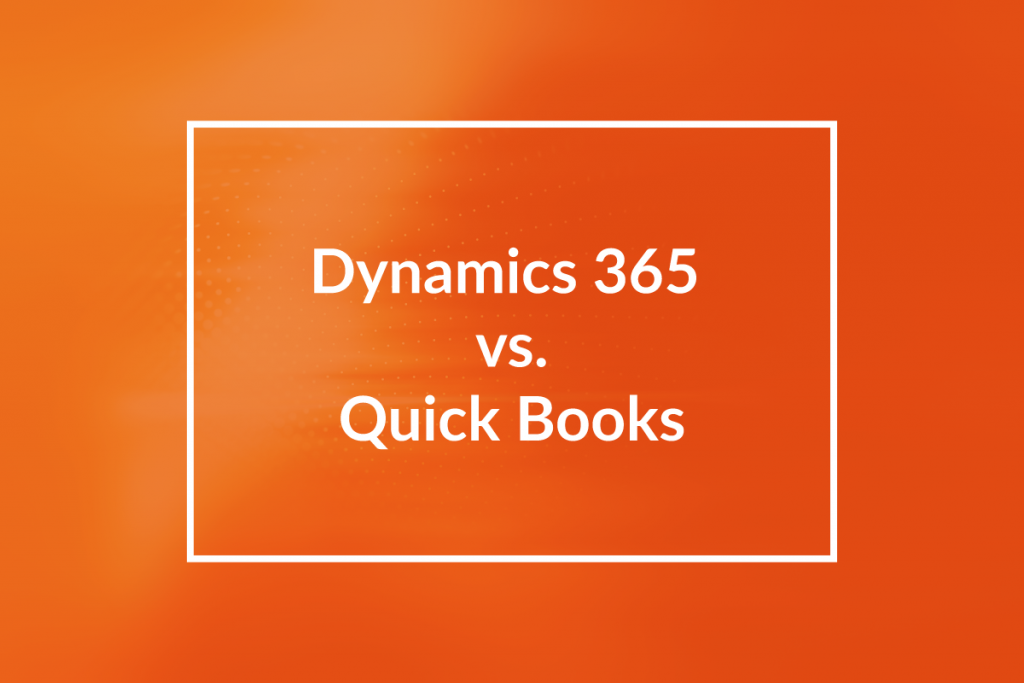So you’re a new business owner, or maybe you’re the CEO of a scaling startup? Either way, you are excited about the strides you’ve already made with your business and you’re ready to take things to the next level. Meaning, you need business management tools that will make your life easier and your company more effective.
There are a few ways to go about this, but first you need to decide what tools (CRM and ERP) you need and how your business model will fit into these solutions. For accounting software, most new business owners and CEOs are probably already familiar with Quickbooks to some extent. This makes sense because it’s the most ubiquitous accounting software on the market today and has been since it was released in 1983.
Why Quickbooks?
Quickbooks was designed for small and mid-sized businesses. It was intended to manage sales and expenses, in addition to tracking daily transactions. Quickbooks has an intuitive user interface, it’s easy to set up and easy to implement. So why would you, as the leader of a promising company, look elsewhere?
Great question.
For most startups, Quickbooks is often the path most traveled. For some, this decision has led to some unintended consequences.
While Quickbooks has a few dependable features, it simply lacks analytical sophistication and offers only surface level insights. On top of that, it has limited reporting options and struggles to control mid to high volume inventories.
If your business is simple and to the point (with very limited data to process), then maybe Quickbooks is right for you. But if you have complex systems and processes (which many businesses do), then you’re much better off investing in a scalable ERP solution.
Hear me out for a second.
Let’s say you want to create an ecommerce business, but you’ve never set up a working website before. You want an easy solution that you can implement now, so you do a bit of research and decide to go with a platform like Wix (just an example). Nothing wrong with that — it’s easy to set up, no coding required and the customer service is great! Everything you need, right?
Well…
Let’s say you set it all up, but now you want to implement some more advanced features, or maybe a powerful plugin and some personalization to enhance your customer’s experience. The problem with platforms like Wix (at least for the time being), is that the more advanced your preferences are, the less likely the platform will be able to support your needs.
It’s the same idea for Quickbooks. At first, it seems like the right solution, but as your inventory grows, your company scales and you start opening new locations (with multiple platform users), Quickbooks beings to slow.
If a company reaches the point of 1,000 transactions a month, Quickbook users start experiencing sedated system performance.
Will you have multiple users? How about a high transaction volume? Do you ever expect to scale to this? If yes, then prepare for delays, lag-time and sluggish processes all topped with a fresh dose of frustration.
The way I like to think about it is like this: if a system is really easy to set up, and even easier to implement, then what is the system even doing for you?
Enter Microsoft Dynamics 365 Business Central.
Microsoft Dynamics 365
Dynamics 365 is a scalable and robust ERP solution that has multiple options for small to enterprise level businesses.
Dynamics 365 called Business Central is a small to mid sized solution that directly competes with Quickbooks. When weighing your options against Quickbooks, D365 is the solution that will outperform and outlast Quickbooks in many diverse situations.
Side note:
If you’re a mid to enterprise level business, your Dynamics 365 solution would be the D365FO, Finance and Operations. More on that solution here.
Unlike Quickbooks, D365 is a solution that can generate a 10,000 foot view of your business. That means it doesn’t just provide a simple financial management software, but rather an end-to-end operational platform that offers you dynamic business applications that seamlessly integrate with each other.
Whether that’s a dashboard for inventory management, a process solution for sales and purchasing or a full-scale accounting solution with well-defined audit trails, D365 uses specifically enhanced modules to connect all of your departments.
Microsoft Dynamics 365 Business Central was built to simplify your business. If that means you only want to implement D365 accounting-based software without all the other bells and whistles, that’s possible! But what’s better about choosing an a la carte option like this (compared to going with Quickbooks), is that when you are ready to scale, Dynamics 365 is ready to take those next steps with you.
Final Thoughts
As for Quickbooks, 85% of new Dynamics 365 Business Central users are ex-users of Quickbooks. Many have said that they are looking for a more dynamic solution that offers deeper and more meaningful insights. Some have lamented that beginning with Quickbooks only created trouble down the road. See our blog on Migrating from Quickbooks to D365.
If you’re company intends to grow, then grow with a platform that was designed to grow with you; a true solution for your digital transformation is a platform like Dynamics 365.

